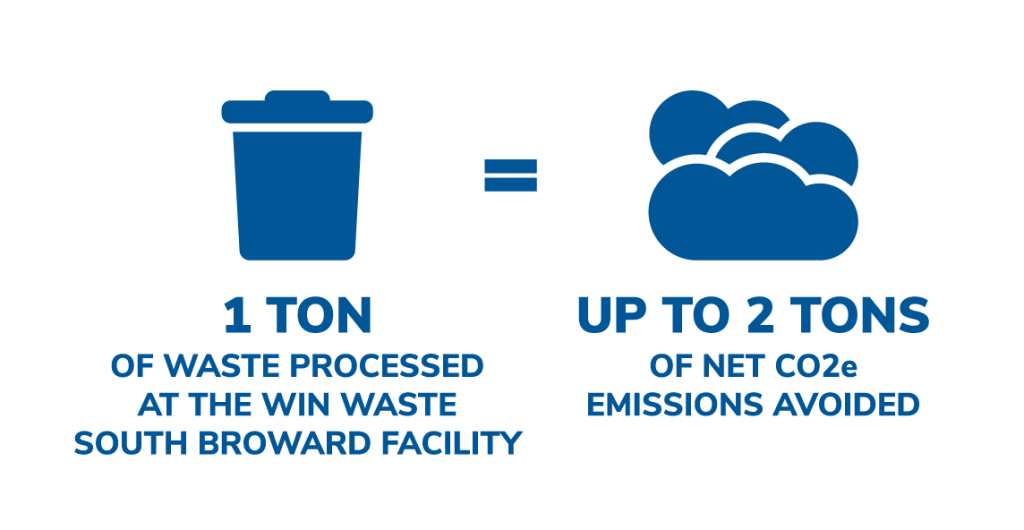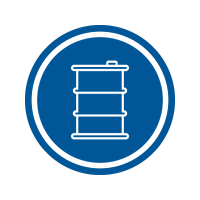Transforming Waste into Sustainable Energy Solutions
Broward Waste To Energy
As part of our continued growth and commitment to sustainability, FCC Environmental Services is proud to welcome the Broward Waste to Energy (WtE) Facility into our network of operations. This location is now fully integrated into FCC’s expanding portfolio of environmental solutions.
With the acquisition of this facility, FCC Environmental Services strengthens its ability to serve the South Florida region with innovative, sustainable waste solutions. Our commitment to environmental responsibility, operational excellence, and community partnerships remains stronger than ever.

Customers and community members can expect:
- Uninterrupted service with the same facility team you’ve come to know and trust
- Continued focus on clean energy generation from waste
- A long-term commitment to the health and sustainability of our environment
Local EXPERIENCE
Commitment to Sustainable Energy Solutions

About the Facility
Our FCC Environmental Services Broward Waste to Energy facility diverts residential and commercial waste from landfills and converts it into renewable energy that powers homes in the communities we serve.
Each year, this facility converts about 824,000 tons of post-recycled waste into renewable energy through a highly efficient combustion process that meets strict federal and state standards. The renewable energy generated at this facility is enough to power the equivalent of 41,000+ local homes and businesses.
Operational Highlights:
- Converts waste into energy, reducing landfill use
- Supplies renewable electricity to thousands of homes
- Operates under strict environmental and safety regulations
- Supports local municipalities with reliable waste processing
Key International Experience:
Our Parent Company, FCC Enviro, has 50+ years of experience in energy recovery from non-recyclable waste.
Operates 13 Waste to Energy facilities worldwide.
Processes 3.8 million tons of waste annually.
Generates a combined power output of 410 Megawatts electrical (MWe).
Through partnerships and investment, FCC has demonstrated sustainable, efficient operations—setting a global standard that we will bring here in the U.S.
- For information regarding our UK international WtE experience visit FCC Environment – Energy Division.
Our Commitment to Sustainability
At FCC Environmental Services, sustainability is at the heart of everything we do. With operations in 7 states and a mission serving more than 12 million people, we are dedicated to reducing carbon emissions and promoting a circular economy. WtE is a key part of this strategy, turning waste into a resource and supporting net zero goals worldwide.
Reducing carbon dioxide equivalent (CO2e) with waste-to-energy
By offsetting the need for fossil fuels, diverting waste from landfills and recycling thousands of tons of metals, waste-to-energy remains the EPA-preferred method for end disposal. Our process not only preserves valuable natural resources and ever-filling landfill space, but it also reduces greenhouse gases. Processing one ton of waste avoids up to two tons of carbon dioxide equivalent (CO2e) into the atmosphere.

The Waste-to-Energy Advantage in Fort Lauderdale Florida




2,250 TONS
of waste processed each day, preserving valuable landfill space
41,000+ HOMES
powered annually, based on the facility’s renewable electric-generating capacity
15,000 TONS
of metals recovered each year for further recycling
837,000+ BARRELS
of oil displaced annually to create the equivalent amount of energy
Site information
Address:
4400 South State Road 7
Fort Lauderdale, FL 33314
Hours:
24 hours per day, 7 days per week
Phone:
⇒ 954-581-6606
Special Waste Accepted: Yes
⇒ Email: specialwaste@fccenvironmental.com
by appointment only from 8:00 a.m. to 2:00 p.m. (M-F)
Open to the Public: No
Operations Began: 1991